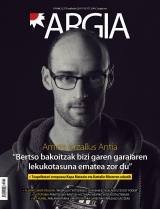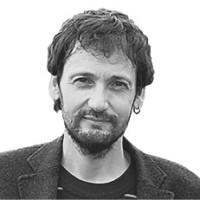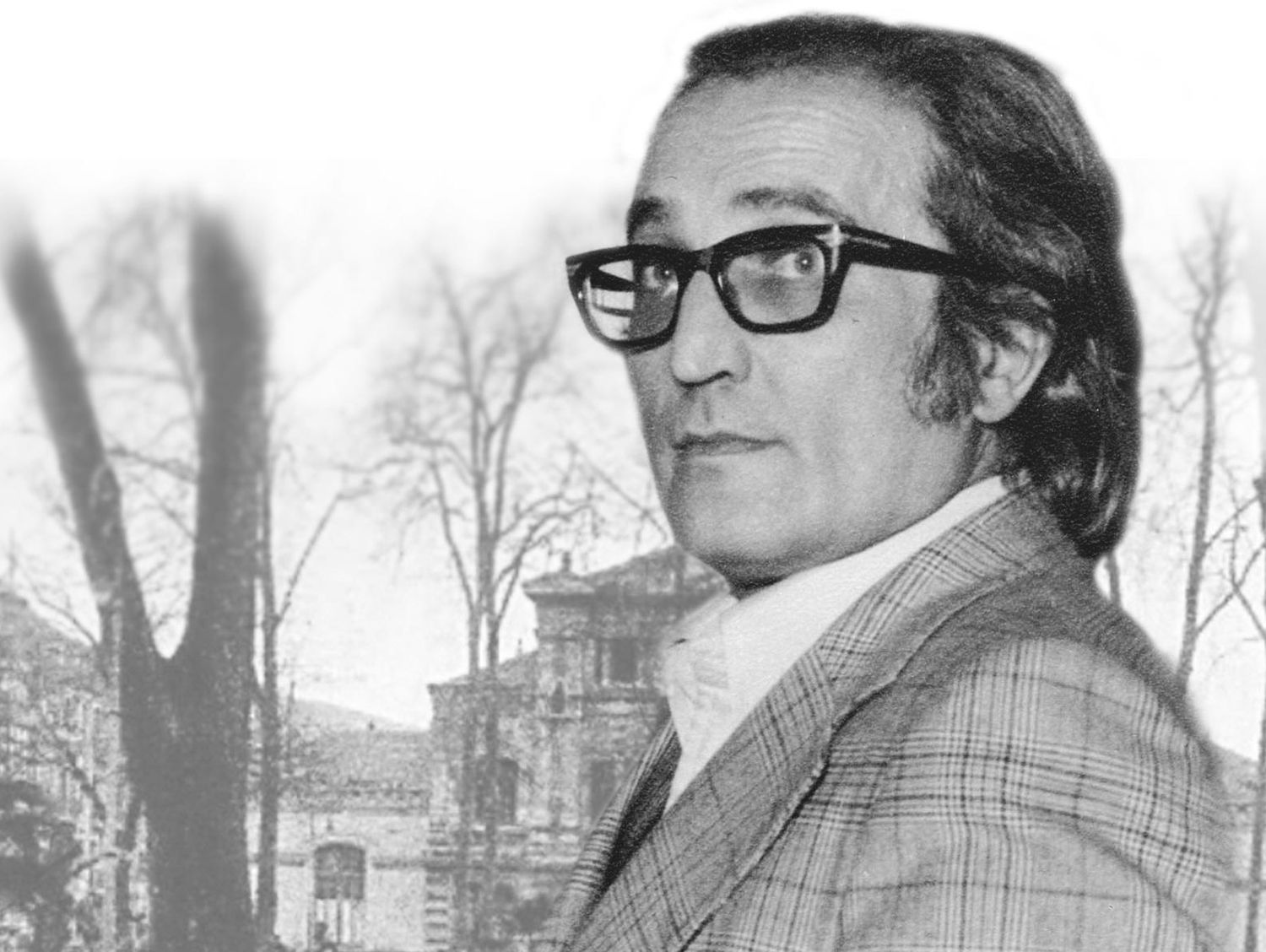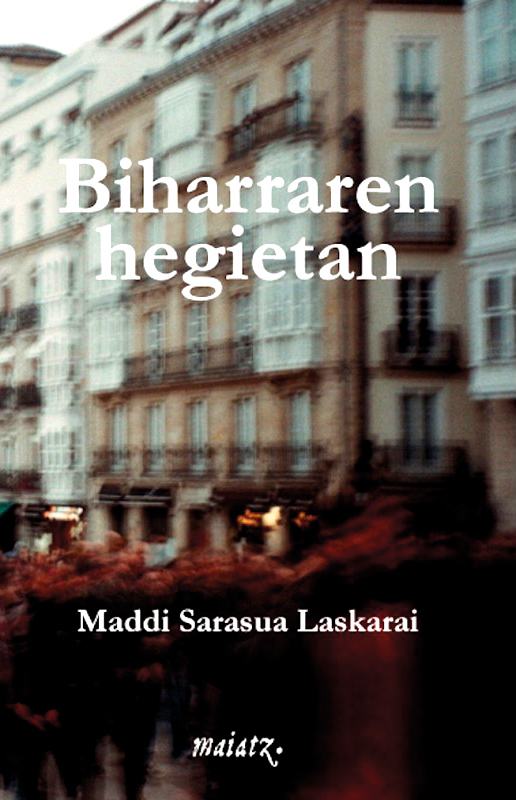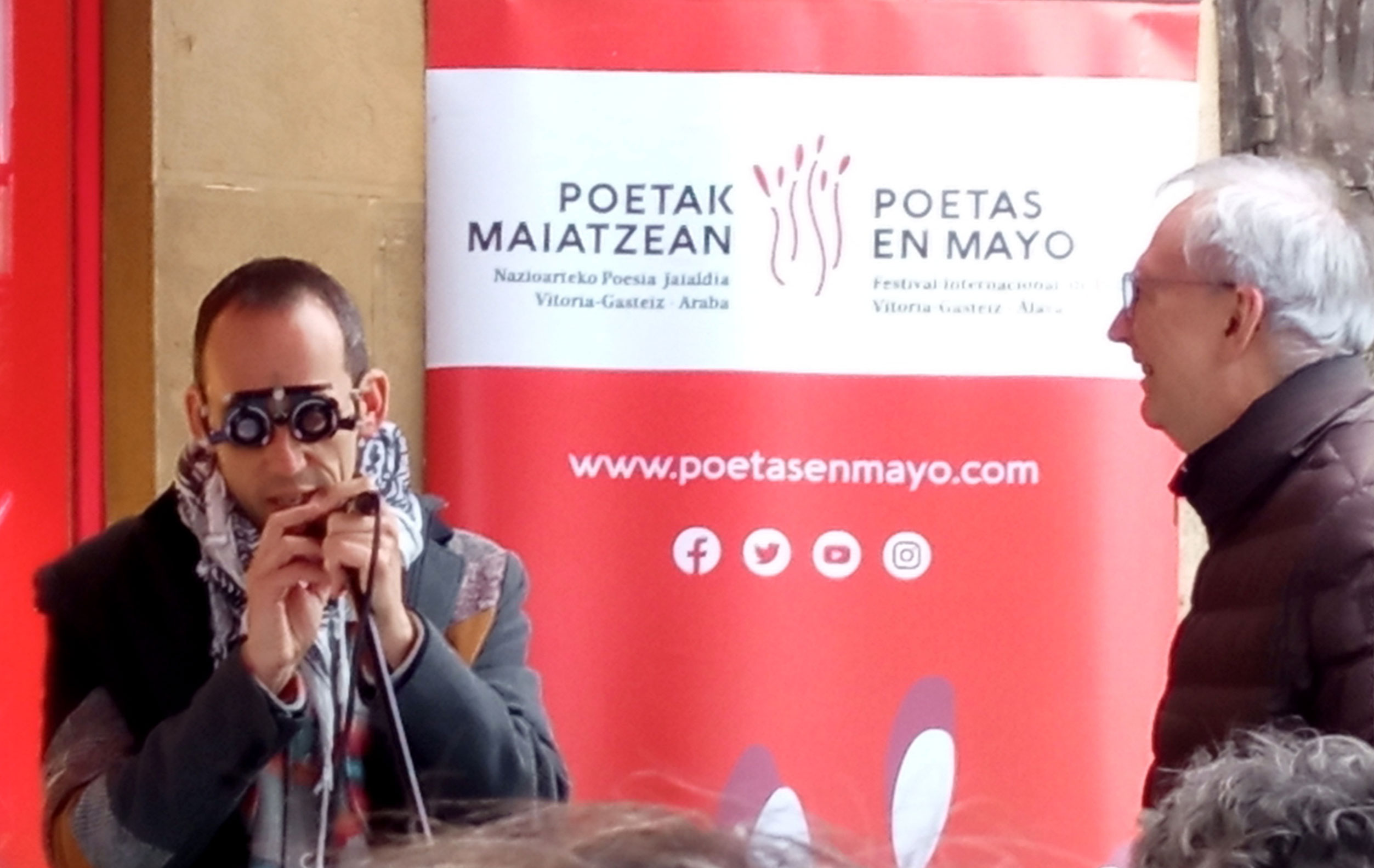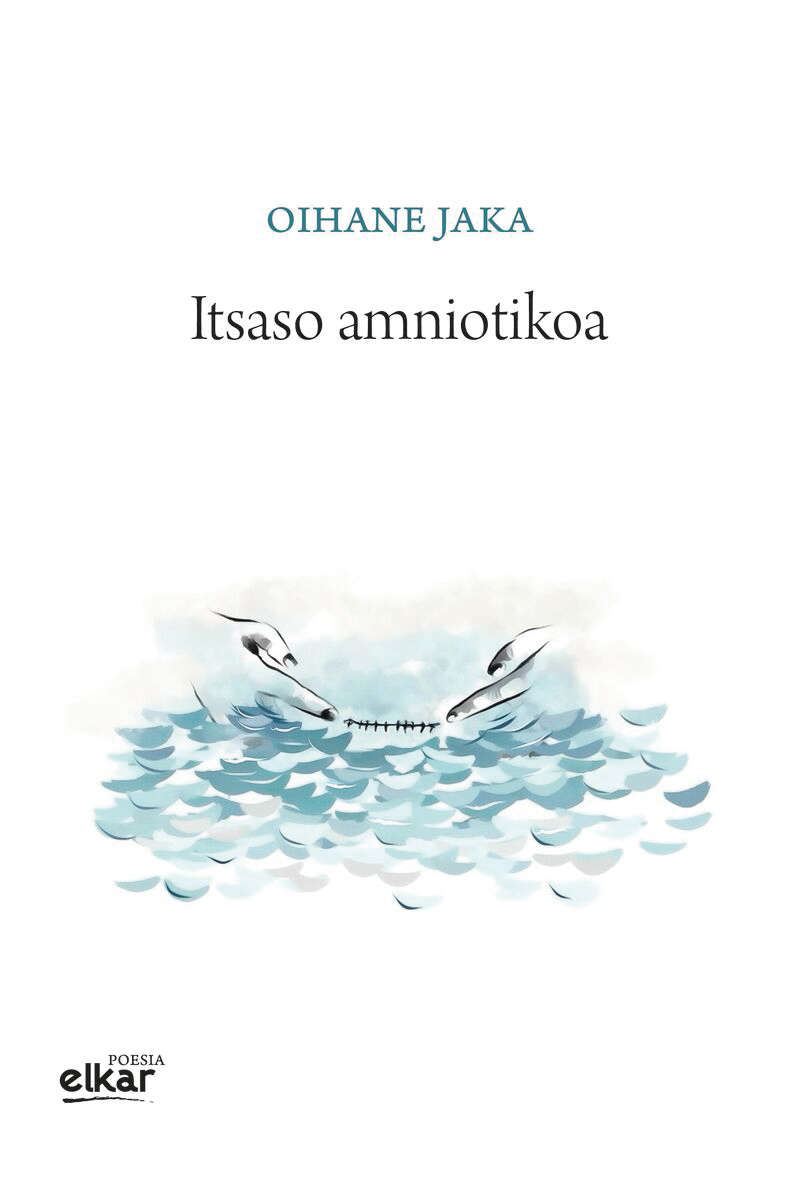"More than looking for what's not there, we have to try to build it from what's there."
- Martín Bidaurre has published a return, giving a string to the loose poems he has written in the last three years. After a rupture of childhood, a person who seeks himself through five episodes appears in the book. In addition to the book, we have talked about the ITU band, its generation, editorials, etc.
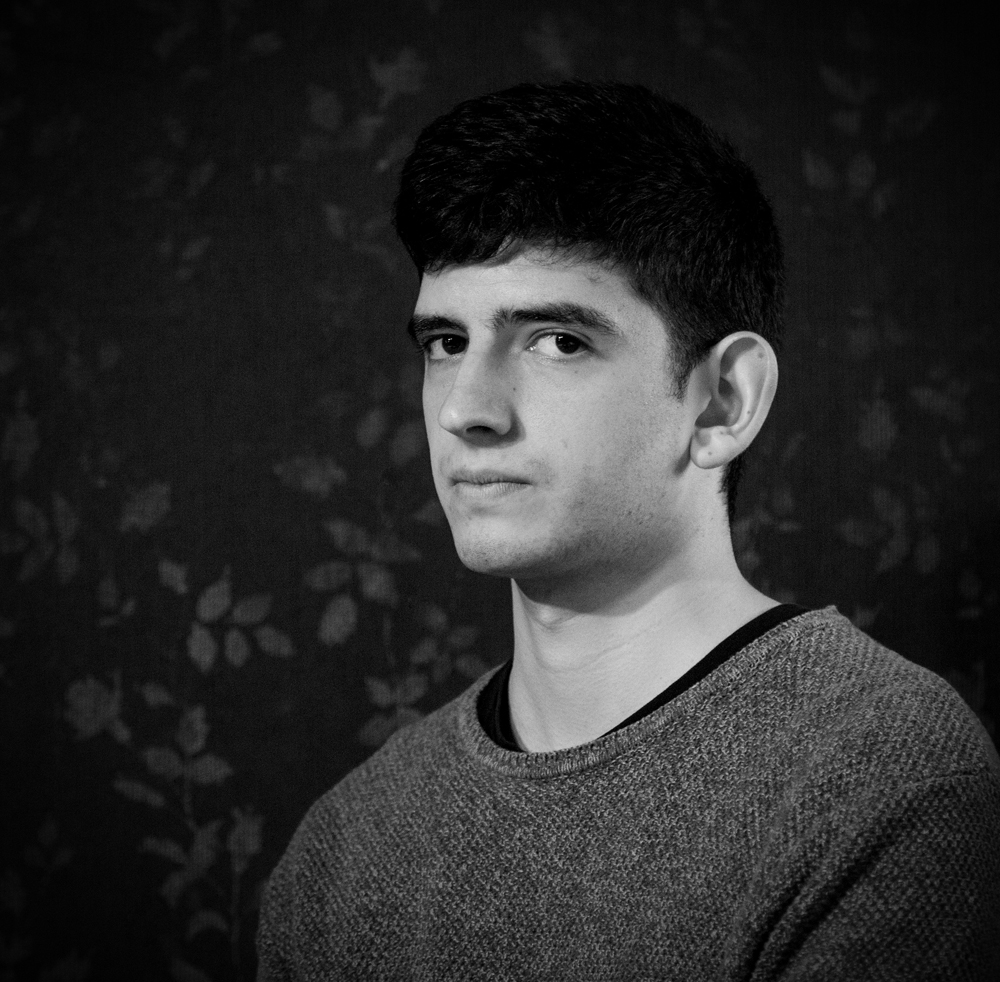
He had already stepped on the praises of Basque literature, but because of that symbolic of the publication of his first book, Martín Bidaur has officially gone to the plaza with the poem Itzulera. The oldest poem in the book he wrote three years ago when he was in Paris. As the material accumulated, he tried some literary contests unhappily. “What I have in my hands is useful for something?” she wondered, “Is it worth continuing to write?” During this period, the closest ones encouraged him to send his poems to the editorial Susa. One day from the Durango Fair, editor Gorka Arrese grabbed him by the back and said: “Are we going to have to take out the book?” And they got to work, wanting to give a whole to the loose copies, until little by little the structure of the book was completed. He has published, he has received criticism – good, so far – and he is giving interviews. “There comes a point: so far. I have nothing else to say about the book.” Fortunately, we've caught it in time.
The book begins with the A Broken Souvenir section. A fact of childhood conditions the life of the poetic self, something is broken in it and since then is searching for itself.
All paragraphs are numbered at the time, except the first paragraph. It is a look back or, rather, an attempt at remembrance. It's focused on childhood, but it's not something that's been counted since childhood. There's a question behind it. Who am I? What makes me the way I am? Even look back to the present and you realize that you don't have the tools to manage the situation. So, you're faced with a false exit: run away. In this case, the flight to Paris.
Evasion appears even before the trip to Paris, as a tendency to isolate itself from the world.
Yes, of course. The leak develops in Paris, but it appears in all the poems of the second part, The Wait. What are you waiting for? He is waiting for his getaway to Paris.
It is on the verge of definitive evasion.
I guess so. Two things are mixed together. It can't be where it's waiting. So, one of the options is to go somewhere to rebuild what's been broken in childhood, or run away from everything behind. Both are mixed in this section. The two leaks are the same.
“Satire, irony or cynicism serve to discredit things, to ridicule hegemonic positions, or even to do more harm. But with this writing you can’t get to build other things.”
A Paris of seduction could appear. A young writer flees to an idealized literary city.
Today it would be more Amsterdam (laughing).
You don't see the least vestige of this city.
From the first poem in Paris there is a certain depression, even from the very heading – I feel this city is a colossal place. In this sense, the city is nothing idealized. It idealizes, more than anything, the sadness of Paris.
The poem Losing the Future says: “In search of what I left behind / something / came / and sometimes it is better / what I left behind / not going back”. He realizes that his plans for Paris have not been carried out.
Moreover, they were not real. There is a frustration: it loses all the pretensions from the very beginning, but in the end they are completely lost. Get out of the leak. And it ends with the train back. “Maybe I’ve become more equitable.”
On the return of Paris there is a clear chronological thread. In this respect, the last two parts are more confusing.
At the bottom of the Islands section there is a fear: that the new stage will not repeat that of Paris. This differentiates him from the last section, The Voids in Succession, because there is already a ray of hope, a desire to overcome, although the tone remains dark and depressive.
The heading of the last paragraph reads as follows: “I have never lost / is the most precious good.”
In a moment it says: Xaukena xauk”. Rather than looking for what is not there, we have to try to build it from what is there. Accept yourself and all those things. And realize that maybe we don't lack something, and if we don't, look at how it affects us. I would like to think that there is a new attitude towards these issues.
How do you combine poems? What is the process?
There's everything. There are impressions of the moment, pointed in the notebook or on the mobile, hence the poems are taken out. There are phrases that I can think of when I go down the street, circling and circling, that have become poems before I get home. There are also attempts to sit in front of the computer and sit at nothing. Then, of course, all the poems are written over and over again, read, corrected… although in the manuscript there are different poems, in the end everything is equal.
In general, I have found quite simple poems. Not very decorative, they go to the essentials. I took, for example, an air from Bulkada by Jon Benito.
It's an honor (laughing). It is true that in poems there is a tendency towards elimination. Then that makes them harder to understand, but it makes a game to suggest.
They're also poems of a few tricks. There's hardly any artifice.
Poems are not self-conscious. Before I write a poem, at most, I say: “I will try to make every three-line stanza.” In any case, I make previous decisions about the structure. For the rest, I look for aesthetic pleasure more, wanting to know what produces something to me. I try to write something that's written differently.

We knew you before the publication of this book. From the beginning you are a member of the ITU band. What have you found there?
It was something I was looking for. Deep down, there was an intention to pull the literature out of solitude. Whether you like it or not, at one point literature is also a social activity. If you like to read and write, if you want to banish what you think and feel, if you want to share with people of the same level… Creating something like ITU has been nice. We're a group of friends.
I guess it will also have a school function.
Of course it does. Then it is what we would like and what reality is. Most of the time, the magazine takes us away and leaves us little time to talk about other things. Sharing texts, debating from whatsapp… I think there is an interaction. However, within the ITU band there are very different styles, the ways of thinking are also very different. We reached some agreements, but we do not have to.
This is obvious. In Lekore magazine there are very different shades: on the one hand, there is a satirical style that appears in the editorial, etc. ; and on the other hand, there is also a “trinchero” language. A poem in this book also shows a meeting to make a “zombie version” of the Lubaki band.
Yes, quite literally. Before creating the ITU band, it was a failed attempt. We got together several people in the Euskalduna bar. They were references Lubaki and Vladimir – I do not know if the latter can be considered as a band, but in Zarautz they did some things, the fanzine, etc. And Susa is also, of course, very important. Both the journal and the editorial. In some of Susa's texts, there's that satirical tone that smokes a little bit with everything. This small reference exists and the editorial tone is discarded. But what's said, there are different ways to understand literature. I think satire, irony or cynicism serve some things. They serve to discredit some things, to ridicule hegemonic positions or even to do more harm. They serve to play with force, showing some positions of force or trying to break them. But with that letter, you can't build other things.
“Whether you like it or not, at one point literature is also a social activity. Creating something like ITU has been nice. We are a group of friends”
And does the ITU band want to build something about everything?
It doesn't have a single calling. He wants to build and he wants to deconstruct. As in all literary systems, here too we have our power relations, with their hegemonic and non-hegemonic agents. But it's a very new and very weak system, you can easily break with an axe. I think we need to be careful. There are many things to change, but many things that are changing. People are doing new and interesting things. And that's the way, to do things.
Many generations have created their own structures here. Has this happened to you in your head?
We took Lekore magazine on our own. In the case of the book, Susa's people offered me the opportunity, and I didn't think twice -- I would certainly accept it. Creating an editorial can make sense, it is not something we do not think about at all – it has recently been created, for example, a White Whale. But you have to ask, why? It can be a good tool if you don't have another way to listen to your voice at the moment or because you think your site isn't in the structures created so far.
Or because creating an editorial, as you do, can cause a literary shake, taking a new generation out of the square.
The question is that: to see if you join a people to make the revolution in Basque literature, or if you join something you like to do. And if something goes right, if not.
Tell me what books have affected you lately.
As I wrote the book, Mari Luz's book of poems Esteban Amaren heriotzak made me freer. I also read a couple of anthologies from the Basque story, I think it was one of them, the stories of the new century led by Mari Jose Olaziregi. I also remember, to quote another one, the Feast of Maria Landa, in the room next to yours, also in Paris. I thought while I was reading, how long it had been since then, and some things that are similar. But well, in addition to that, I would tell you a lot of other things.
Do you have anything in your hands?
I read and write on my own. It's been a liberator to write the book, because now I'm writing other things instead of poetry. I've always had a hard time writing a fiction, telling a story ... You can write poems from time to time, but for the first time, with the book finished, in summer I've been on vacation writing stories. I do not know whether there will be anything out of there, but I am very happy to have done it at once.
Between January and May 2015, after finishing my studies at the age of 25, my friend Irati Astobieta and I toured Chile, Argentina and Uruguay as part of the Calabazan Wandering Project. Using the poetic tool of whispered poetry, we gave Basque poems from mouth to ear in the... [+]
Istorioetan murgildu eta munduak eraikitzea gustuko du Iosune de Goñi García argazkilari, idazle eta itzultzaileak (Burlata, Nafarroa, 1993). Zaurietatik, gorputzetik eta minetik sortzen du askotan. Desgaitua eta gaixo kronikoa da, eta artea erabiltzen du... [+]
Entrepreneurship is fashionable. The concept has gained strength and has spread far beyond economic vocabulary. Just do it: do it no more. But let us not forget: the slogan comes from the propaganda world. Is the disguise of the word being active buyers? Today's entrepreneurs are... [+]
Spring is usually a promise of a cold winter nose that can come after the landing, and has been annotated several times for sleep. Promise, however, is never a safe spring in a ruined terrain. Not at least if we are talking about change or, in particular, revolution. Maddi... [+]
We opened the poems book by Oihana Jaka and found two deals. One father and another son. It is worth noting for its direct relationship with the poems we will find. The book is structured in three parts:
Hamaika urte, Hamaika hilabete eta Hamaika egun. Number eleven is also... [+]
Yolanda Castaño has been interviewed since she received the Spanish National Poetry Prize. The head of a row from one of them caught my attention because he said the second hardest thing he's ever done is win the prize. And I immediately began to look for what was the hardest... [+]
A few years ago, I wrote a little book about Tene Mujika, which is called Udazken Argitan. When I started doing that biographical essay, I met our protagonist today, Mr. Watson Kirkconnell. In 1928, Kirkconnell published a nice book of European Elect anthology, which included... [+]









